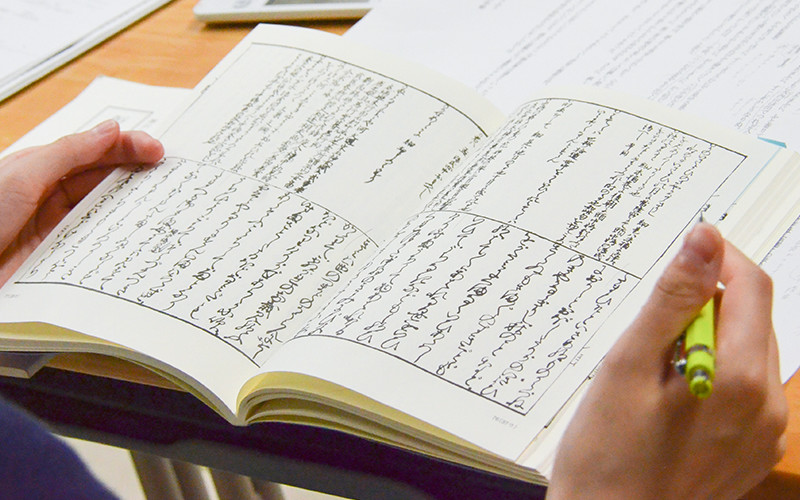Introduction of Humanities Course

Based on the general theories and skills of the humanities and ability to view things from a higher perspective, the Humanities Course aims to lead local humanities research, propose new social values through dialogues with others, and contribute to the society in which people with diverse values coexist.
Admission and Diploma policies of the Humanities Course
Field of study and research
Humanities Course has two fields of study: Field of Human Culture, and Field of Language and Culture. The following shows major research areas for each field of study:
| Field | Major research areas |
|---|---|
| Human Culture | Philosophy/Ethics, Art History, Cognitive Psychology/Experimental Psychology, Sociology, Geography, Archaeology, Japanese History, Asian History, Western History |
| Language and Culture | Linguistics, Japanese Linguistics, Japanese Literature, Korean Language and Culture, Chinese Literature and Thought, English Linguistics, English Communication, British and American Linguistic and Cultural Studies, American Literature, British Literature, German Linguistics, French Language and Culture |
Faculty
Human Culture
Language and Culture
Obtainable teacher’s licenses
In the Humanities Course of the Division of Law and Letters, students can obtain advance class teacher’s licenses for junior and senior high schools by earning the required credits. Note that only individuals who possess a Type 1 teacher’s license are qualified.
| Advanced Class Teacher’s License for Junior High School | Japanese, Social Studies, English |
|---|---|
| Advanced Class Teacher’s License for Senior High School | Japanese Language, Geography and History, Civics, English |
The basic qualifications and the minimum credits required are as follows:
| Type of license | Advanced Class Teacher’s License for Junior/Senior High School |
|---|---|
| Basic qualification | Holding a master’s degree |
| Minimum credits | 24 (with courses related to the subject(s) or teaching) |
Careers in which graduates are expected to be active
Government or company employees to work for the promotion of regional culture, government or company employees to work with their foreign language skills, junior/senior high school teachers to engage in secondary education, advancement in career, doctoral students, etc.
